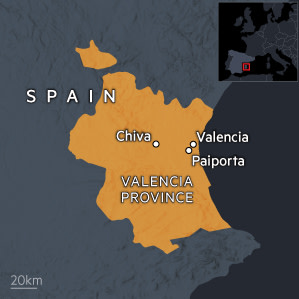Sweden open to power cable project if Germany reforms, minister says
Stay informed with free updates
Simply sign up to the EU energy myFT Digest — delivered directly to your inbox.
Sweden has said it is prepared to approve a power cable connecting Germany to southern Sweden if Berlin reorganises its electricity market to stop drawing as much lower-cost power from overseas.
Ebba Busch, Sweden’s energy minister, told the Financial Times that the Hansa PowerBridge project, a 700 megawatt connector planned to link the German and Swedish electricity markets, would be postponed “until Germany gets its system in order”.
But, she added, “the Swedish government would be prepared to move” on the project if Germany split its internal electricity market into bidding zones that would increase the efficiency of its networks and lower prices.
Such reforms would prevent Germany from attracting as much of Sweden’s cheaper electricity, generated largely by hydropower, and avoid costs being pushed up for Swedish consumers. Electricity flows on the networks to wherever the highest price demand is.
Sweden’s grid is already connected to Germany through one interconnector, which runs under the Baltic Sea.
The debate over European electricity prices has become increasingly heated this year as EU member states rush to add weather-driven renewable power to the system in order to move away from Russian gas and fossil fuels.
This has prompted periods of significant overproduction when the sun shines and wind blows but also stints of very low generation when there is no sun or wind.
Several countries have recorded highly volatile prices as a result.
Busch said prices were jumping from “minus prices” to around €1 per kilowatt hour in southern Sweden last Wednesday and Thursday. “That makes for a very difficult business case” for investment, she added.
In the summer Greek Prime Minister Kyriakos Mitsotakis also voiced concerns over inexplicably high bills in Greece, describing the bloc’s energy system as a “black box” that should be better scrutinised.
“If we want to have an energy market that functions well and that really takes advantage of renewables, we should think about some sort of European regulator that looks at these issues and has the capacity to intervene,” Mitsotakis said.
The EU’s energy regulator Acer warned on Monday that electricity network costs could double by 2050 “endangering the overall affordability of electricity bills” as more strain is placed on existing grids.
Norwegian politicians said last week, as electricity prices there reached the highest level since 2009, that they wanted to review interconnectors between Norway and Denmark, Germany and the UK.
Prices have since dropped back to record lows for December.
Referring to Oslo’s concerns, Busch said it was “a sad moment for Europe when an open, progressive country that likes being part of the rest of the world is signalling that we might not want to be part of this interconnected energy system . . . it’s a strong signal to be taken seriously”.
Busch laid the blame for Germany’s high prices on its decision to close down its nuclear power plants and oppose support for nuclear at EU-level after the Fukushima incident in 2011.
Sweden took a similar decision under its previous government but has reversed its policy, becoming one of the strongest advocates for nuclear power at the European level — a debate that has caused deep division between Germany and strongly pro-nuclear France.
Sweden’s own energy system often suffers from huge regional price discrepancies as there are poor transmission links from the north where most of Sweden’s hydropower plants are located. Last week consumers in Gothenburg — home to Volvo Cars, Volvo Trucks and SKF — paid 190 times more for electricity than those in the northern city of Luleå.
“Our energy policy has been hopeless. If we don’t sort things out soon, big parts of industry could be in trouble,” said a leading Swedish business executive.
Busch said Europe had to stop engaging in “political struggles” over nuclear power and encourage more investment into the technology to stabilise the system.
In a dig at German energy minister Robert Habeck, a member of the anti-nuclear Green party, Busch said: “No political willpower can override the basic rules of physics, not even Dr Robert Habeck.”
Additional reporting by Eleni Varvitsioti in Athens
Climate Capital

Where climate change meets business, markets and politics. Explore the FT’s coverage here.
Are you curious about the FT’s environmental sustainability commitments? Find out more about our science-based targets here
#Sweden #open #power #cable #project #Germany #reforms #minister






